When we think of pigeons, the common city-dwelling bird often comes to mind. Yet, the world of pigeons is incredibly diverse, boasting a variety of species that are as rare as they are stunning. These avian gems are hidden across different continents, each with unique plumage, intriguing behaviours, and fascinating histories. In this article, we embark on a journey to discover ten of the world’s rarest and most beautiful pigeons. From the iridescent Nicobar Pigeon to the elusive Pink Pigeon, prepare to be amazed by the splendour and variety of these feathered wonders.
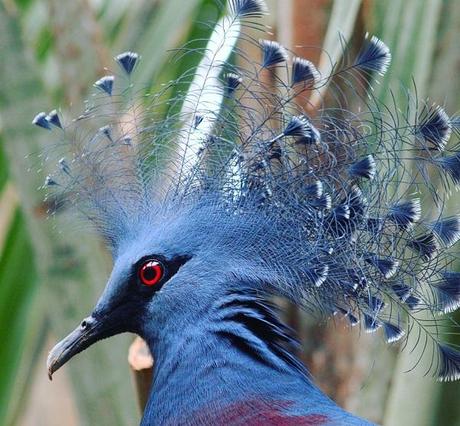
Victoria Crowned Pigeon (Goura victoria)
Its blue feathers sure are pretty to look at, but it is the blue lace crests with and red irises that really makes it stand out. This is also one of the largest ground-dwelling pigeons in the world and many people believe it to be closely linked to a peacock.
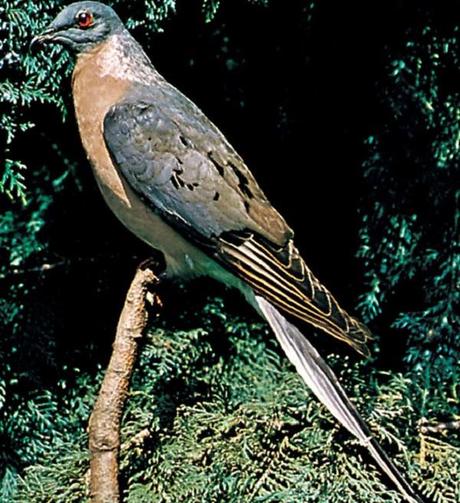
Passenger Pigeon (Ectopistes migratorius)
This is officially the rarest pigeon on earth. But just how rare is it? A pigeon called Martha (pictured) is thought to be the last passenger pigeon in the world and sadly she died on September 1, 1914, at the Cincinnati Zoo. But a bird watcher from Asia is said to have seen a breeding pair which is considered one of the greatest enigmas of Indonesian ornithology.
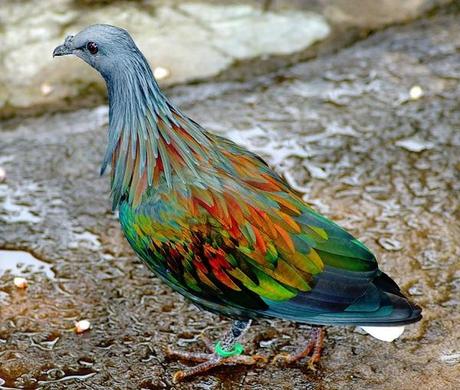
Nicobar Pigeon (Caloenas nicobarica)
First seen in our other post about pigeons, the Nicobar pigeon is the only living member of the genus Caloenas and may be the closest living relative of the extinct dodo! Pigeons do not get any more colourful than this one, but it does go to show the sheer variety you get in the pigeon family.
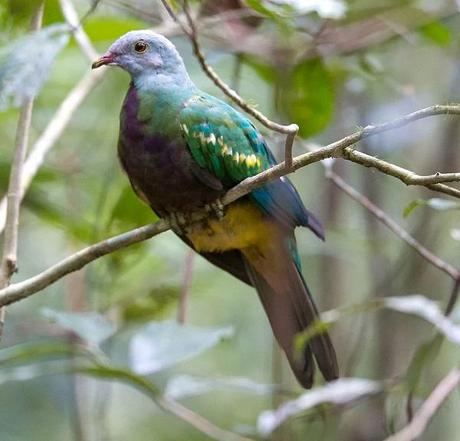
The Wompoo Pigeon (Ptilinopus magnificus)
It’s important to know that there is no strict division between pigeons and doves, which share certain features. So while this is often called the Wompoo Pigeon it is in fact a Wompoo fruit dove and one of the larger fruit doves native to New Guinea and eastern Australia.
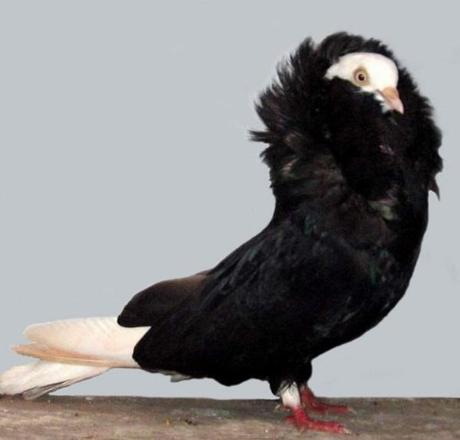
Old Dutch Capuchine Pigeon (Columba livia)
This type of Fancy pigeon (a designer breed bred by pigeon fanciers) is best known for its head crest that often resembles a fluffy scarf. It is mostly seen in Biggleswade, Malaysia and Singapore, but usually only seen in the hands of pigeon fanciers rather than the wild.
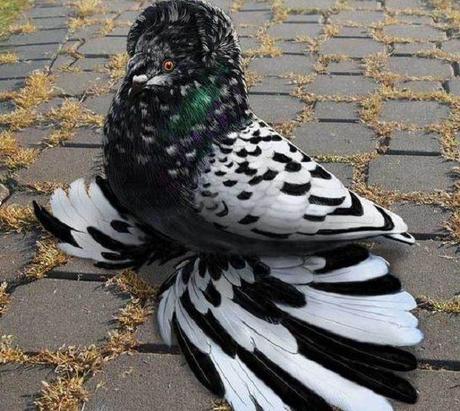
The English Trumpeter Pigeon (Columba livia)
Once again this is a type of Fancy pigeon rather than a wild one, but it has been very popular in recent years with many seen in the wild after being released or simply escaping captivity. The most distinguishing feature of this breed is the very large muffs on its feet, which often grow to sizes close to its flight feathers.
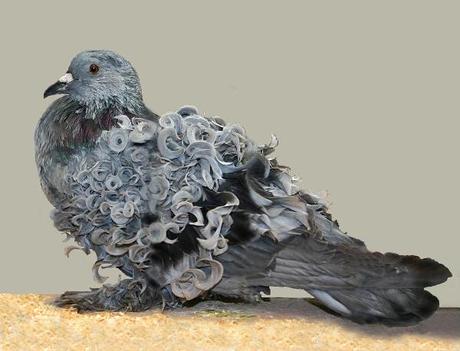
Frillback Pigeon (Columba livia)
Once again a type of Fancy pigeon, only this one is best known for the frill or curls on the wing shield feathers. While they do come in many colours the rarer the colour, the more the pigeon is worth in pigeon fancying circles.
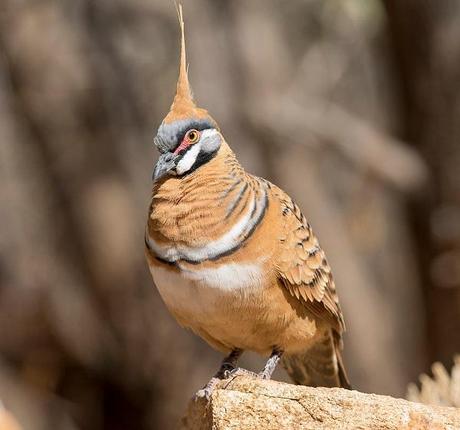
Spinifex Pigeon (Geophaps plumifera)
I don’t think I need to point out what makes this pigeon stand out from the rest. This is not a pigeon many people have seen, but it is also not that rare. The reason for this is because Spinifex pigeons do not travel long distances to water, requiring permanent water in close proximity to foraging areas.
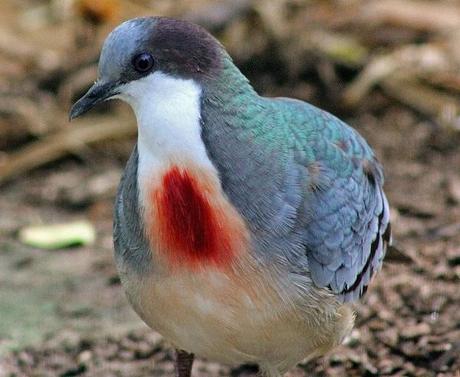
Mindanao Bleeding-heart Pigeon (Gallicolumba crinigera)
The name ‘bleeding-heart’ comes from the patch of red on the breast of these birds. Sadly they are now in decline mostly due to habitat loss and their reluctance to fly elsewhere.
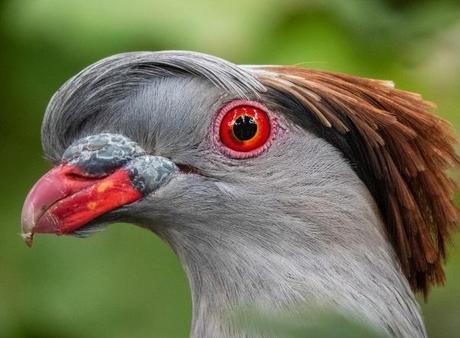
Topknot Pigeon (Lopholaimus antarcticus)
There are not many pigeons with a comb-over that even Donald Trump would be proud of, but this is one of them. Found from Cape York Queensland to the central south coast of New South Wales. These pigeons cover great distances in search of fruit-bearing trees suddenly appearing in areas where they have not been seen for many years.
As we conclude our exploration of these extraordinary pigeons, it’s clear that the avian world holds many hidden treasures. Each species, with its unique beauty and rarity, reminds us of the incredible diversity of life on our planet. These pigeons, often overlooked, are a testament to nature’s creativity and resilience.
If you’ve enjoyed learning about these remarkable birds, consider supporting conservation efforts to protect their habitats and ensure their survival for future generations. Share this article with fellow nature enthusiasts, and let’s continue to marvel at and preserve the stunning diversity of our natural world.

